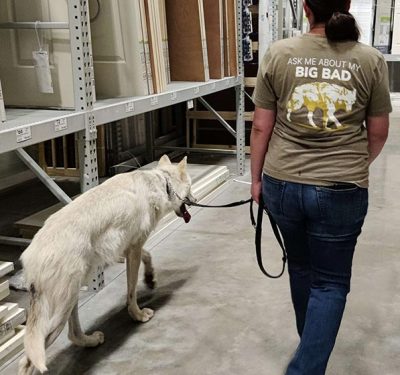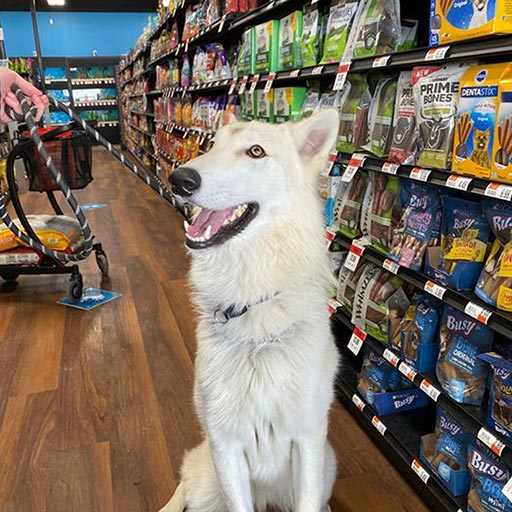
We were recently asked the question, “If an ambassador is normally a role that is voluntarily undertaken by a person to act as a representative, does The Big Bad Project consider the title of ‘Ambassador Animal’ accurate?”
In all honesty, this has probably been one of our favorite questions to have been asked because it is thought-provoking and prompts deeper discussions surrounding the topic of animal ambassadors. If animals are deemed ambassadors, who makes that decision if not the animal and what is the role of that animal?
There are many different ways you can define an Ambassador Animal. Some people believe that Ambassadors should be able to handle a variety of public interactions and human contact with ease, others believe that any animal presented to the public outside of their normal enclosure or environment is considered an Ambassador Animal. Essentially, the answer to what exactly qualifies an animal to be an ambassador is going to vary depending on who you ask.
We believe that the role of an Ambassador Animal is to represent a species, showcasing some behaviors that are consistent with that of their wild counterparts. When possible, we support tactile interactions with Ambassador Animals when an animal’s natural demeanor is accepting and/or inviting of human presence but we definitely don’t believe that should be a requirement.
In the case of Grey Wolves, they are naturally wary of human interaction and we don’t want to misrepresent that fact by conditioning our animals to be overly accepting of human contact. We chose our animals to be representatives of their wild counterparts and because they did not get a say in the matter, we feel it is only fair to let them choose how they feel comfortable interacting with people.
Our programming is virtual, so our animals are blissfully unaware that they are being watched by people. We went the virtual program route mainly for accessibility reasons, however, we’d be lying if we said that our animal’s comfort levels didn’t play a huge role in that decision. Each of our animals responds differently to people and situations, it is up to us to put their needs and well-being first.


Do we think that the title of Ambassador Animal is appropriate for animals that did not get to choose their role? Yes.
Does it help to have an animal that is docile and accepting of strangers? Absolutely!
Is it necessary to consider an animal an ambassador? We don’t think so (at least, not for our intents and purposes).
Our animals play a huge role in the representation of their wild counterparts and we want to be sure that we’re transparent about what we consider the definition of an Ambassador Animal to be. For us, the accuracy of the animals being depicted is of far greater importance than the friendly nature of that animal with persons unknown. We never want to give the impression that wolves are just like domesticated dogs, nor do we want to have ambassadors that act just like domesticated dogs. Our animals were never wild, however we do our best to showcase instinctual behaviors and how working with them can lead to a peaceful coexistence.